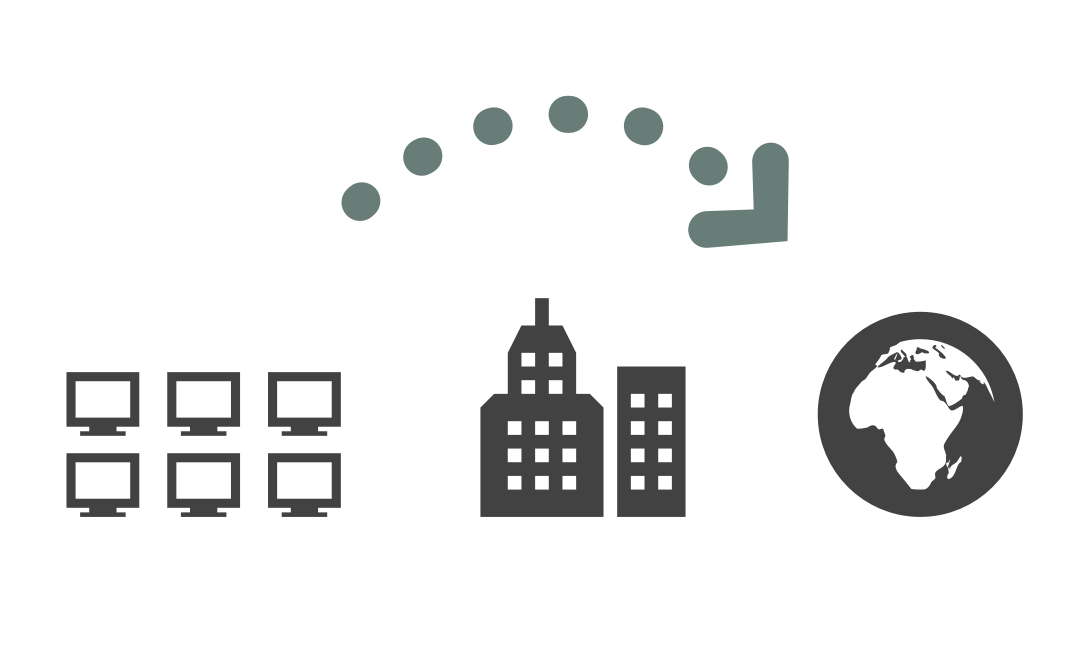
There isn’t any question that inclusive corporate practices and business shared values have been highlighted in recent years as customers increase their search for companies who induce rich social impact throughout their supply chain and workflows. In fact, contemporary organizations risk falling behind the curve if they don’t adopt impact sourcing in their processes.
For several years, companies looked at deploying “social good” policies as a type of afterthought or even icing on the cake. The main focus was profit. Now, things are changing. Many millennials, and gen Z’ers, actively search for businesses who have long-term strategies around social impact.
Today, embracing and embedding social impact into business processes is no longer an option – it is mandatory. Even prospective employees only want to work for companies that have infused social good practices into their overarching policies.
Not to mention, in an increasingly competitive marketplace, consumers have countless options right at their fingertips. In the end, they will choose to patronize a business with values that align with theirs. Now, let’s talk a bit more about impact sourcing.
What is impact sourcing?
Many industries are in the position to improve their business practices. Impact sourcing simply means employing individuals who come from a disadvantaged background, and providing them with opportunities they might not have otherwise received.
There are billions of people who just can’t access professional business opportunities because they also don’t have access to higher education. For instance, Africa may have the largest workforce on this planet, but they certainly don’t have enough jobs for their populations. Impact sourcing offers employment to people who live in locations with persistently high rates of unemployment.
Further, these are people who may live in rural areas, or even slums, and don’t have access to secondary education. So then, as these types of people receive better career opportunities – and higher wages – they can actually go to college and be better able to help their family members who are in need.
Impact sourcing is gaining traction
Led by organizations such as the Rockefeller Foundation and Business for Social Responsibility (BSR), impact sourcing is also proving advantageous for companies who adopt this particular business practice. According to BSR, “Impact sourcing is not philanthropy; it is a business practice that seeks to maximize societal and business outcomes.” There are also some practical applications you can implement within your company.
- Focus on the people
A successful impact sourcing program should not be about the numbers, or even the algorithm, it should be about the people. These are not automated robots, but every employee has unique gifts and talents they can bring to your organization. And, through their tenure with your business, they can spread the benefits throughout their communities. Not to mention, you are accessing a talent pool inundated with motivated individuals. Moreover, you don’t have to change your organization’s values simply because you are hiring in another country or working with a supplier in a disadvantaged area.
- Business improves through long-term relationships
It always helps to remember that, when it comes to business, the bottom line is still critical. You certainly want to be known as a company who prioritizes social impact. Yet, that shouldn’t be the end all and be all. Your business should still ensure your customers get the quality they’re accustomed to along with the right price and the right customer experience.
Invariably, happy employees are much more productive and they are much more loyal to a company. As a result, they have the potential to become more skilled at their roles which leads to getting a larger amount of work done in less time. The best way to improve happiness and motivation is to offer an opportunity to someone who – under normal circumstances – would not have received such an offer.
Turn your company into a force for good
There is still limited understanding about the various populations – throughout the world – who need more help. In this regard, it takes time and research to determine where your impact sourcing program can make the most impact.
Participate in conversations with people from disadvantaged communities to gain a better understanding of their experiences and challenges. Partner with organizations such as the Global Impact Sourcing Coalition (GISC). Currently, the GISC is challenging its member companies to start hiring at least 100,000 workers before the end of 2020. The GISC also offers toolkits for download which include case studies and best practices. Now, you can design your impact sourcing strategy.
Next, host job fairs in disadvantaged areas. If your company can’t be there physically, then partner with local organizations. Other ways to help include offering guest lectures, online training, and mentorships. Change people’s lives with training and education.
Remember that disadvantaged communities aren’t only found in developing countries. There are disadvantaged individuals in developed countries, as well.
Final thought
There is no greater feeling than knowing your company can help disadvantaged individuals out of poverty all around the globe. Impact sourcing can provide some stability in war-torn regions when opportunities for career, education, and training increase. When a person feels secure, they also gain a feeling of peace. Just take a look at the change in formerly war-torn regions of southeastern Europe where many citizens now work remotely for companies all over the world. As the global skills gap continues to grow, it’s time to consider the talent outside of the traditional pools.
